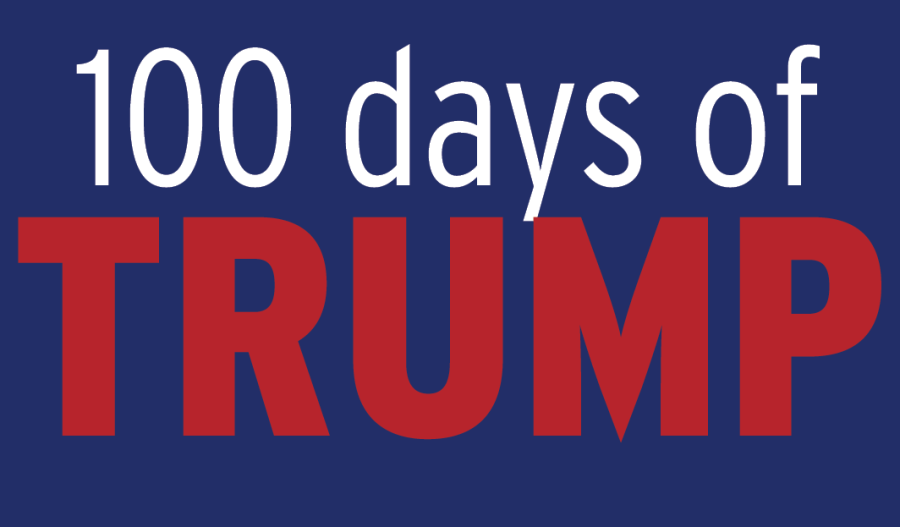Story by Collin Morris, Assistant Sports Editor
The administration of President Donald Trump increased its involvement in foreign affairs through day 90 as the U.S.’ new relationships with Russia and North Korea continue to materialize.
Russia
After bombing a government-controlled air base in Syria, U.S. and Russian officials entered a war of words about the current nature of the two countries’ relations.
In a press conference following the first official meeting between U.S. Secretary of State Rex Tillerson and Russian President Vladimir Putin on April 12, Trump elucidated the deteriorating relationship.
“Right now we’re not getting along with Russia at all, we may be at an all-time low,” Trump said.
Russia’s state-operated news organization criticized Trump Wednesday on live television, contrasting their previous months of praise. Dmitry Kiselyov, a top journalist for the Kremlin and Putin appointee, said Trump is comparable to North Korean Dictator Kim Jong Un.
“Trump is more impulsive and unpredictable than Kim Jong Un,” Kiselyov said.
However, on April 10, four days after the U.S. air strikes hit Syria, U.S. Press Secretary Sean Spicer called Russia an ally, then later clarified in the same press conference, saying Russia stands with North Korea, Syria and Iran.
Despite Trump’s failure to inform members of Congress prior to the strike, Captain Jeff Davis, Pentagon spokesperson, confirmed that the U.S. did forewarn Russia.
“Russian forces were notified in advance of the strike using the established deconfliction line,” Davis said in an official statement. “U.S. military planners took precautions to minimize risk to Russian or Syrian personnel located at the airfield.”
Trump is still under FBI investigation for his ties to Russia during the 2016 presidential election.
North Korea
The isolated autocracy launched yet another failed ballistic missile test launch, escalating global tensions directed toward the country even further.
Following the launch, North Korean Vice-Foreign Minister Han Song-ryol told the BBC the republic will be “conducting more missile test on a weekly, monthly and yearly basis.”
Han went on to say North Korea would – in fact – pursue nuclear weapons as a means of retaliation to a U.S. attack.
Despite this warning, Trump sent a U.S. Navy armada to the Korean Peninsula on Friday, April 14. The armada was led by the U.S.S. Carl Vinson, the same aircraft carrier used for the burial of Usama bin Laden.
Trump has also reportedly discussed North Korea with Chinese President Xi Jinping, attempting to coax the leader into tougher policy on the nation by dangling the potential of a trade deal favorable to China.
In an interview with the Wall Street Journal, Trump alluded to the deal.
“We have tremendous trade deficits with everybody, but the big one is with China, and I told them, ‘You want to make a great deal?’ Solve the problem in North Korea,” Trump said. “That’s worth having deficits. And that’s worth having not as good a trade deal as I would normally be able to make.”
According to the Observatory of Economic Complexity , China accounts for 83% of North Korea’s trade.
The Trump administration has also made headlines with its involvement in Afghanistan and Turkey in recent days.
On Thursday, April 13, the U.S. dropped the largest non-nuclear bomb in history on an ISIS tunnel system in Afghanistan. Ismail Shinwary, the governor of Achin province within Nangarhar, confirmed to the BBC a death toll of more than 90 ISIS soldiers and zero civilian casualties.
Trump also called Turkish President Recep Tayyip Erdogan after his narrow victory in a referendum vote on Sunday, April 16, which greatly expanded his power.
An official response to the referendum from the U.S. State Department noted “observed irregularities on voting day” and “an uneven playing field during the difficult campaign period.”


























































































